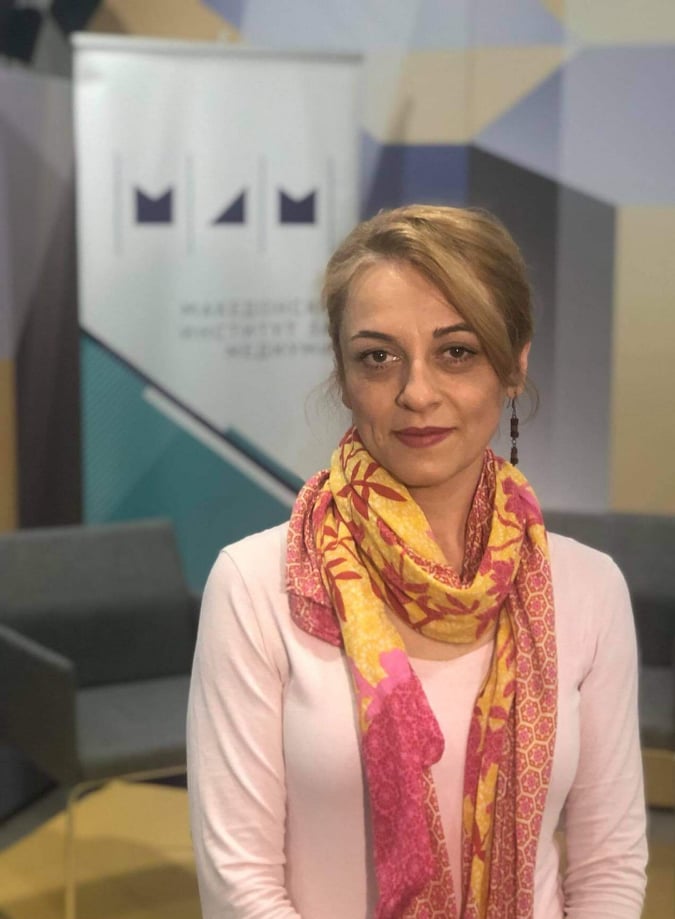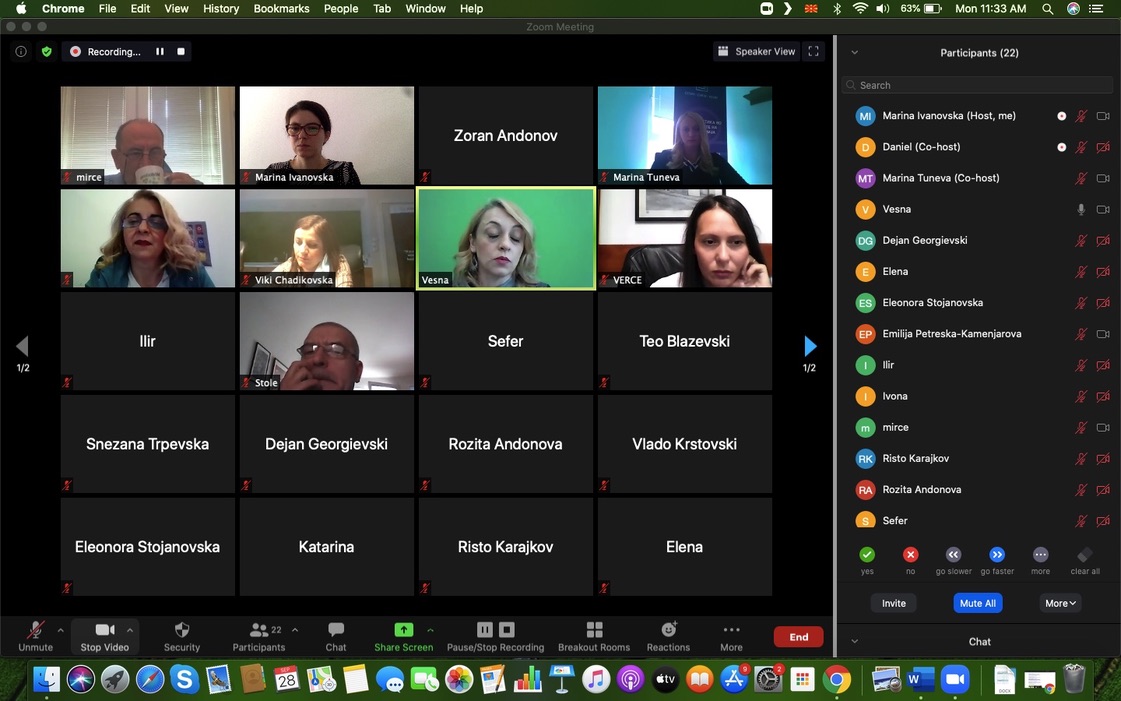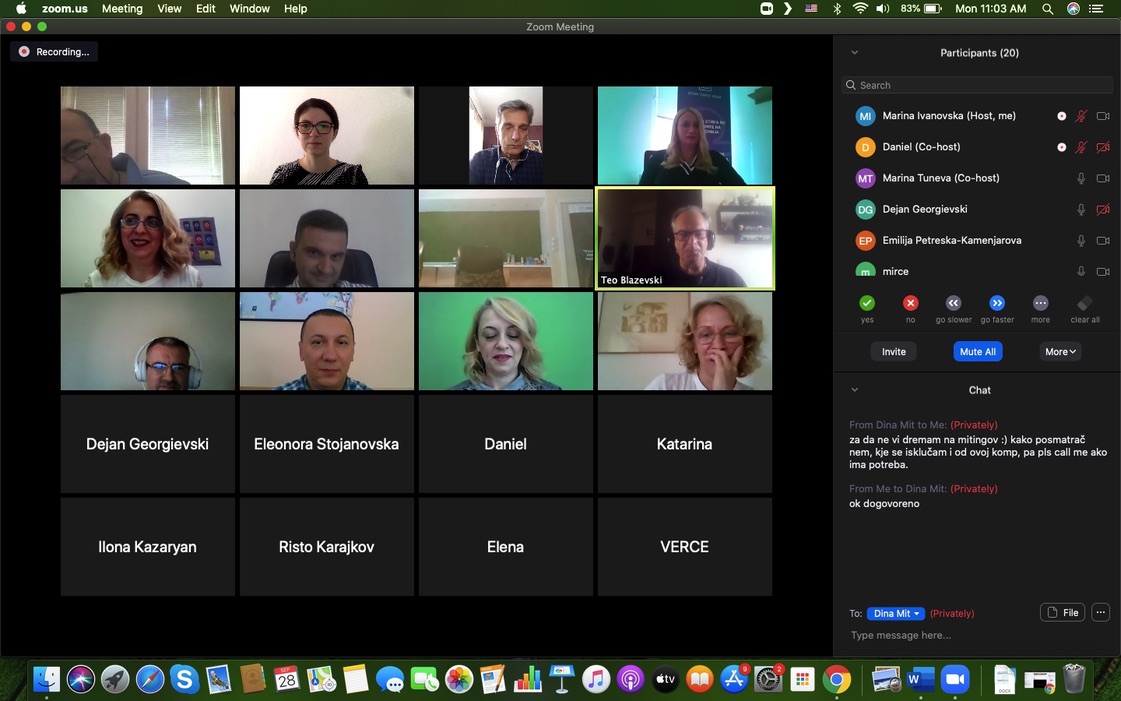According to Adamcevski, the number of press complaints to the self-regulatory body for hate speech is declining. The comparative review of CMEM indicates that from 2014 to 2017 the share of decisions on hate speech or discrimination in the total number of adjudications is 28.8 percent, in 2018 it is already declining and is 23.7 percent, last year the number was 20 percent, and this year, until August 10, only five percent were recorded. “However, this does not mean that hate speech is less and less used, but that it is a matter of moving from media to social networks or, more precisely, to comments on social networks, where media post their content,” he said. In order to deal more successfully with hate speech in the media, he recommends that citizens be encouraged to file press complaints, to intensify coordination among members of the Network for Combating Hate Speech, and to increase cooperation and coordination with the courts and the Prosecutor’s Office. “Journalists must not show indifference and reluctance towards hate speech, because such a content can be interpreted as an act of approval and encouragement,” Adamcevski said.
“Traditional media, in their reporting, in the past year, have mostly refrained from open hate speech, this problem mostly happens online”,  Vesna Nikodinoska, Program Manager at the Macedonian Media Institute said. The outbreak of the global crisis caused by the coronavirus in 2020 coincided with the period prior to the parliamentary elections in the country. “These two topics created a ground for escalation of misinformation and hate speech on political and ethnic grounds,” Nikodinska stressed. According to her, “women, children, people with disabilities, marginalized and displaced persons, who fall into the categories of citizens who were most affected by the restrictions imposed due to the coronavirus crisis, remained in the shadow of reporting on the crisis and the elections even after their completion.” During the crisis, as Nikodinska explained, stereotypes and prejudices, sexism, misogyny and hate speech against women, especially on social networks, surfaced. Some examples include several women journalists who have been insulted by certain media or social networks.
Vesna Nikodinoska, Program Manager at the Macedonian Media Institute said. The outbreak of the global crisis caused by the coronavirus in 2020 coincided with the period prior to the parliamentary elections in the country. “These two topics created a ground for escalation of misinformation and hate speech on political and ethnic grounds,” Nikodinska stressed. According to her, “women, children, people with disabilities, marginalized and displaced persons, who fall into the categories of citizens who were most affected by the restrictions imposed due to the coronavirus crisis, remained in the shadow of reporting on the crisis and the elections even after their completion.” During the crisis, as Nikodinska explained, stereotypes and prejudices, sexism, misogyny and hate speech against women, especially on social networks, surfaced. Some examples include several women journalists who have been insulted by certain media or social networks.
On the other hand, “the impression of the journalists themselves is that people with disabilities were reported little and sporadically. “Most often, the information related to persons with disabilities referred to the measures taken by the Government in relation to this category of citizens, reactions to the measures from citizens, as well as information from civil society organizations on the support provided to persons with disabilities,” Nikodinoska said. However, it was mostly about broadcast news and short reports, without personal stories, in-depth analysis, statistical data that will portray the situation and the status of this category of citizens. Not only the traditional, but also the online media have an obligation to produce news that will oppose the hate speech and misinformation that are spread online, the representative of MIM said.
The media, in accordance with the basic role of informing, have the function of reporting that there is hate speech in the society, Emilija Petreska-Kamenjarova, Head of the Department of Human Rights and Media Literacy at the Agency for Audio and Audiovisual Media Services said. “But, what they must not do is break the law and become a source of hatred. They must not broadcast direct calls for violent actions, be a source of hate speech and report unprofessionally in cases when they inform about the existence of hate speech,” Petreska-Kamenjarova explained.
 Петреска – Камењарова упати и на посебните забрани од член 48 во Законот за аудио и аудиовизуелни медиумски услуги, според кои „аудио и аудиовизуелните медиумски услуги не смеат да содржат програми со кои се загрозува националната безбедност, се поттикнува насилно уривање на уставниот поредок на Република Македонија, се повикува на воена агресија или на оружен конфликт, се поттикнува или шири дискриминација, нетрпеливост или омраза врз основа на раса, боја на кожа, потекло, национална или етничка припадност, пол, род, сексуална ориентација, родов идентитет, припадност на маргинализирана група, јазик, државјанство, социјално потекло, образование, религија или верско уверување, политичко уверување, друго уверување, попреченост, возраст, семејна или брачна состојба, имотен статус, здравствена состојба, лично својство и општествен статус, или која било друга основа“.
Петреска – Камењарова упати и на посебните забрани од член 48 во Законот за аудио и аудиовизуелни медиумски услуги, според кои „аудио и аудиовизуелните медиумски услуги не смеат да содржат програми со кои се загрозува националната безбедност, се поттикнува насилно уривање на уставниот поредок на Република Македонија, се повикува на воена агресија или на оружен конфликт, се поттикнува или шири дискриминација, нетрпеливост или омраза врз основа на раса, боја на кожа, потекло, национална или етничка припадност, пол, род, сексуална ориентација, родов идентитет, припадност на маргинализирана група, јазик, државјанство, социјално потекло, образование, религија или верско уверување, политичко уверување, друго уверување, попреченост, возраст, семејна или брачна состојба, имотен статус, здравствена состојба, лично својство и општествен статус, или која било друга основа“.
Petreska-Kamenjarova also referred to the special prohibitions from Article 48 of the Law on Audio and Audiovisual Media Services, according to which “audio and audiovisual media services must not contain programs that endanger national security, encourage violent overthrow of the constitutional order of the country, incite military aggression or armed conflict, incite or spread discrimination, intolerance or hatred based on race, skin color, origin, nationality or ethnicity, sex, gender, sexual orientation, gender identity, belonging to a marginalized group language, citizenship, social origin, education, religion or belief, political belief, other belief, disability, age, marital or marital status, property status, health status, personal status and social status, or any other basis.”
In accordance with Recommendation no. R (97) 20 of the Committee of Ministers of Member States on hate speech “national law and practice should make a clear distinction between the responsibility of the author of a hate speech, on the one hand, and the responsibility of the media and media professionals, on the other, for the contribution to its distribution, as part of their function to present information and ideas on issues of public interest, on the other hand”.
Any restriction on freedom of expression, Petreska-Kamenjarova stressed, should be the result of monitoring that “should follow the way in which the European Court of Human Rights assesses if there is a need to restrict freedom of expression in each case, i.e. if the restriction on freedom of expression: is prescribed by law, has a legitimate goal and is necessary in a democratic society.”
“It is necessary to open a debate with film producers who produce TV series, where stereotyping roles of men and women are noticed. There are also stereotypes about other vulnerable groups. We lack debate with all actors, all entities that have influence on the process of socialization,” Snezana Trpevska, President of the RESIS Institute said.
„“We, as a self-regulatory body, also play a big role in suppressing hate speech, instructing the media to pay attention to the content they post on their Facebook profiles and then be responsible for administering the comments,” Teofil Blazevski, a member of the Press Complaints Commission at CMEM said. In his opinion, sanctions for those who use hate speech on social networks can be an influential measure. The Prosecution Office also has a key role in that as the first link, and then the Court, Blazevski said.

